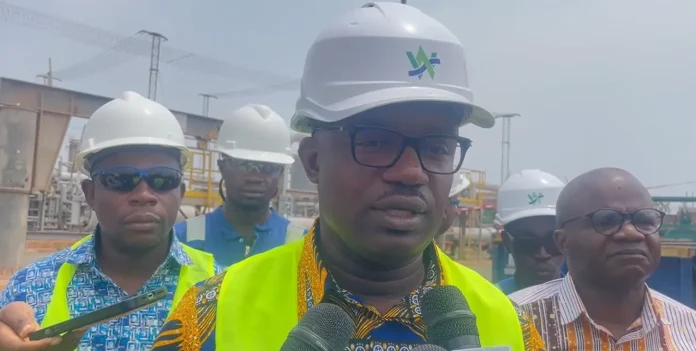Energy and Green Transition Minister John Jinapor has thrown his support behind a proposal requiring all electrical work on construction projects to be handled exclusively by certified contractors, a policy shift that could fundamentally reshape Ghana’s electrical industry if implemented. The commitment came during a Wednesday, October 22 meeting with Ghana Electrical Contractors Association leadership at the Ministry’s headquarters, where discussions centered on long-standing safety concerns that have plagued the sector.
GECA emphasized that mandating certified contractors would enhance safety, reliability, and compliance with professional standards while reducing electrical fires and accidents linked to poor wiring and substandard materials. It’s a straightforward argument, but one that carries significant weight given the country’s troubling fire statistics. The Ghana National Fire Service has linked many recent fire outbreaks, particularly in commercial areas and markets, to illegal power connections, substandard materials, and faulty electrical installations.
The timing of this push couldn’t be more critical. For over a decade, electrical faults have consistently ranked among the leading causes of fire in Ghana, yet enforcement of existing regulations remains frustratingly weak. While the Ghana Electrical Wiring Regulations of 2011 have been on the books for years, substandard wiring, unlicensed electricians, and unregulated electrical products still dominate markets and homes.
Minister Jinapor has tasked a technical team within the Ministry to develop a comprehensive roadmap addressing issues raised by GECA, suggesting this isn’t just political theater. He reportedly told stakeholders the policy framework could save lives and protect property across the country. That’s not hyperbole when you consider what’s at stake. The question is whether the technical team will produce yet another policy document that gathers dust, or something with actual enforcement teeth.
The electrical industry’s credibility problem runs deeper than most realize. The Energy Commission has certified over 18,000 electricians to date, conducting 23 certification exercises, which sounds impressive until you recognize how many uncertified practitioners continue operating freely. According to the Energy Commission, the presence of uncertified practitioners undermines the robust framework established by the Ghana Electrical Wiring Regulation, which was enacted to ensure safety and quality of life and property.
What GECA is essentially proposing is to close the loopholes that allow unskilled operators to undercut certified professionals on price while delivering dangerously substandard work. A skilled electrician is only as effective as the tools and components they use, and substandard cables, sockets, and switches remain common in the Ghanaian market. Even properly trained electricians can’t guarantee safety if they’re forced to work with counterfeit materials to remain price competitive.
The Minister assured that his Ministry will continue collaborating with the Public Utilities Regulatory Commission, the Energy Commission, and GECA to strengthen regulations and raise professional standards within the sector. That multi-agency approach is necessary because the problem spans the entire supply chain, from importers bringing in fake cables to developers hiring unlicensed electricians to cut construction costs.
The construction industry will likely push back against mandatory certification requirements. Developers accustomed to hiring the cheapest available labor won’t appreciate being told they must use certified contractors who charge higher rates. And there’s the practical challenge of enforcement. Who inspects every construction site to verify contractor credentials? How are violations penalized? These aren’t minor implementation details.
GECA, founded in 1948 and now representing members across all 12 regions, appears determined to see this through. The association has been advocating for stronger enforcement for years, but this meeting with Minister Jinapor marks the first time in recent memory that a sitting energy minister has committed to developing a concrete policy framework in response.
Whether that commitment translates into meaningful change depends on what happens in the coming months. If the Ministry’s technical team produces clear guidelines, establishes verification mechanisms, and creates penalties significant enough to deter violations, this could mark a turning point. If not, it becomes another well-intentioned proposal that dies in the implementation phase, and Ghana’s electrical safety crisis continues claiming lives and destroying property.
Source: newsghana.com.gh











